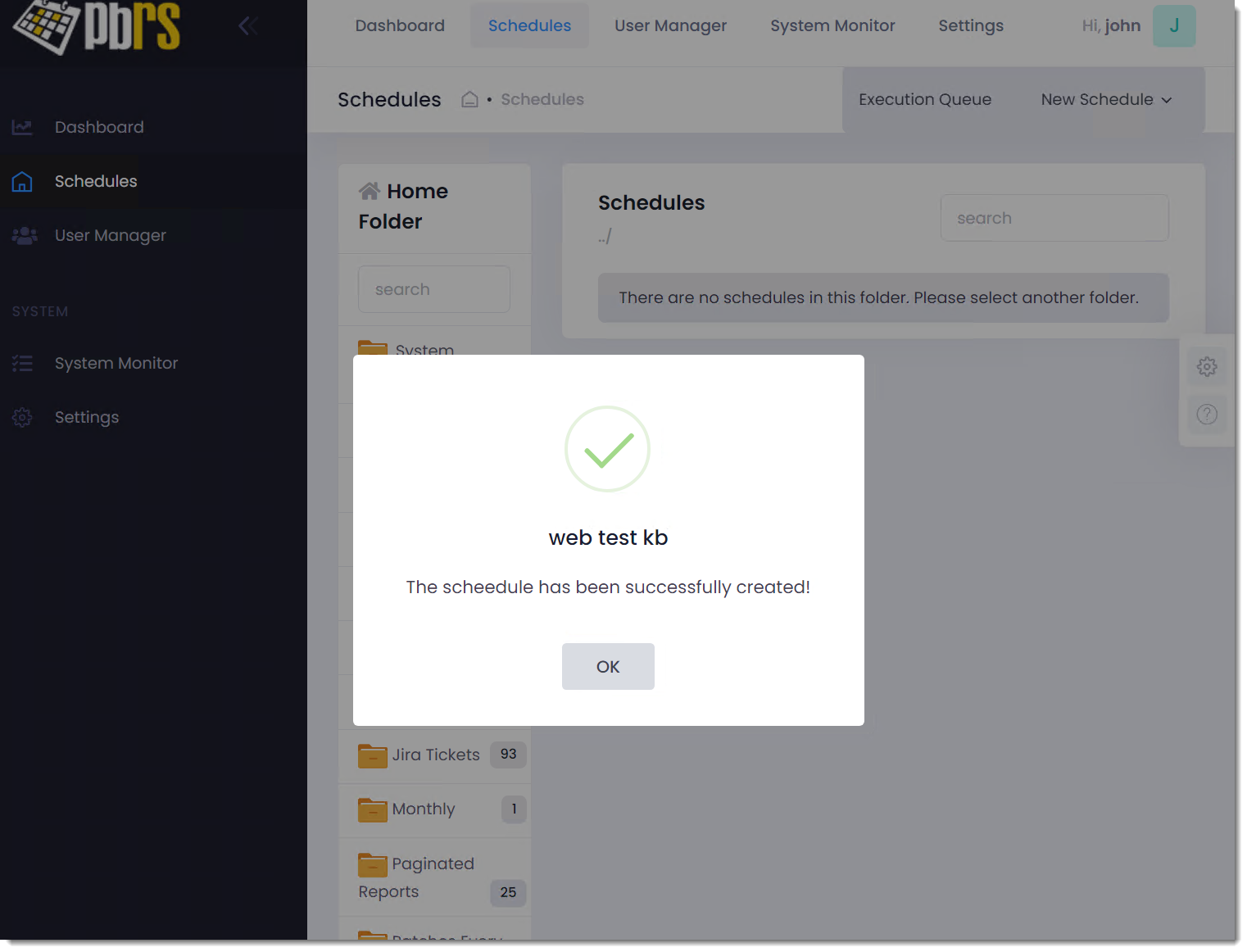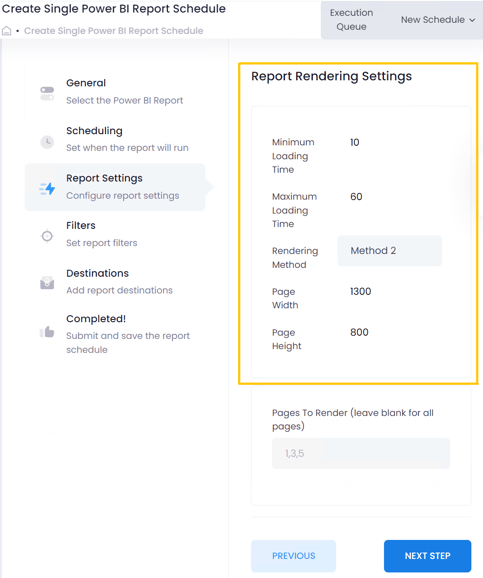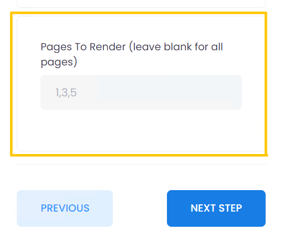How do I create a Single schedule for a Power BI report in the PBRS Web Application?
This article will provide a step-by-step guide to building and deploying a Single schedule for a Power BI report in the PBRS Web Application.
Step 1 - To create a new schedule for a Single Power BI Report in the Web Application, begin by selecting the "New schedule" drop-down menu. From there, choose the option for "Single Power BI Report Schedule".
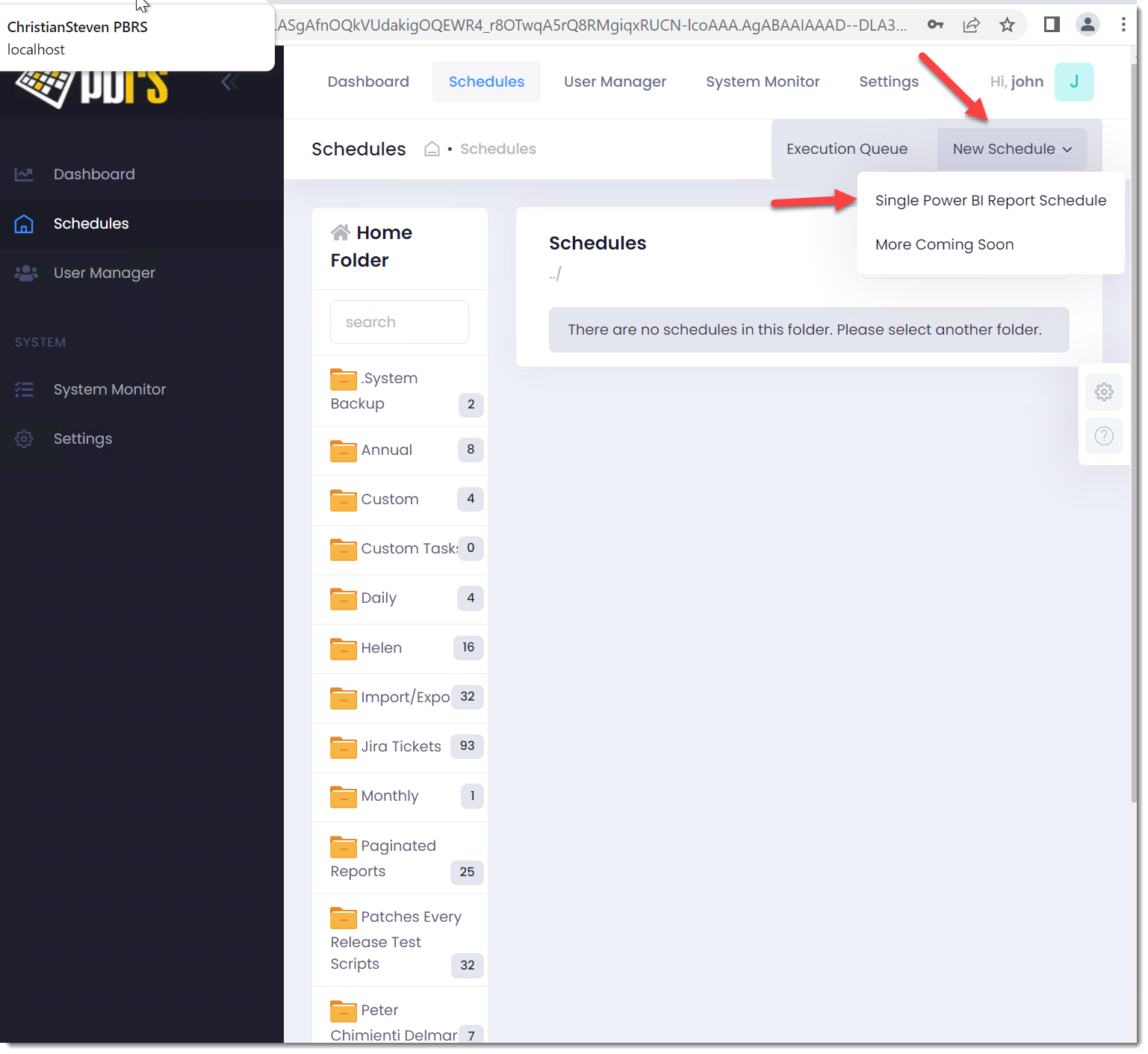
You will then see the Scheduling Screen where you can configure the schedule settings.
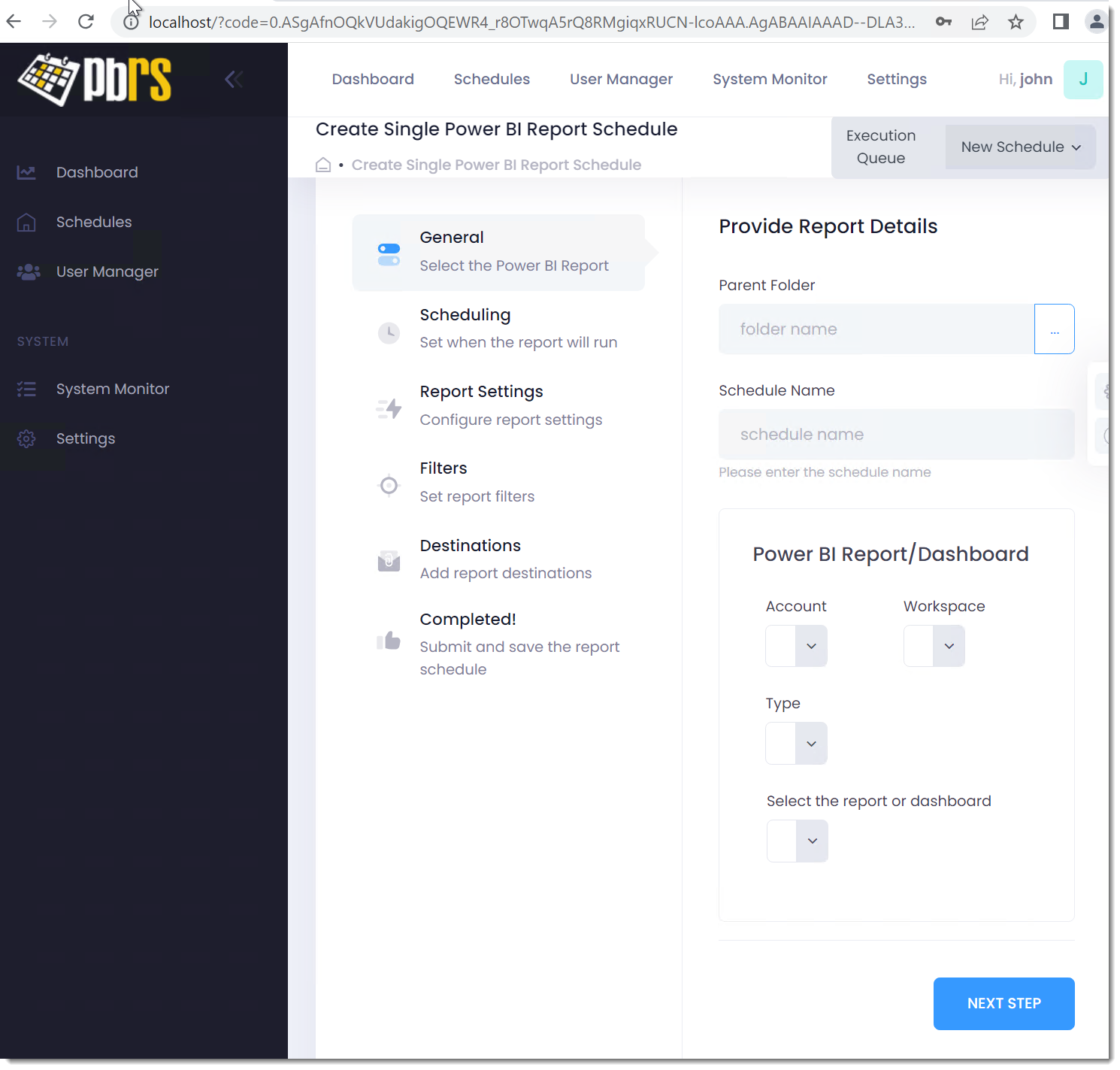
Step 2 - General Tab: In the "Provide Report Details" section, click on the (...) option and select your Parent Folder from the list provided and give the Schedule a Name to easily identify it.
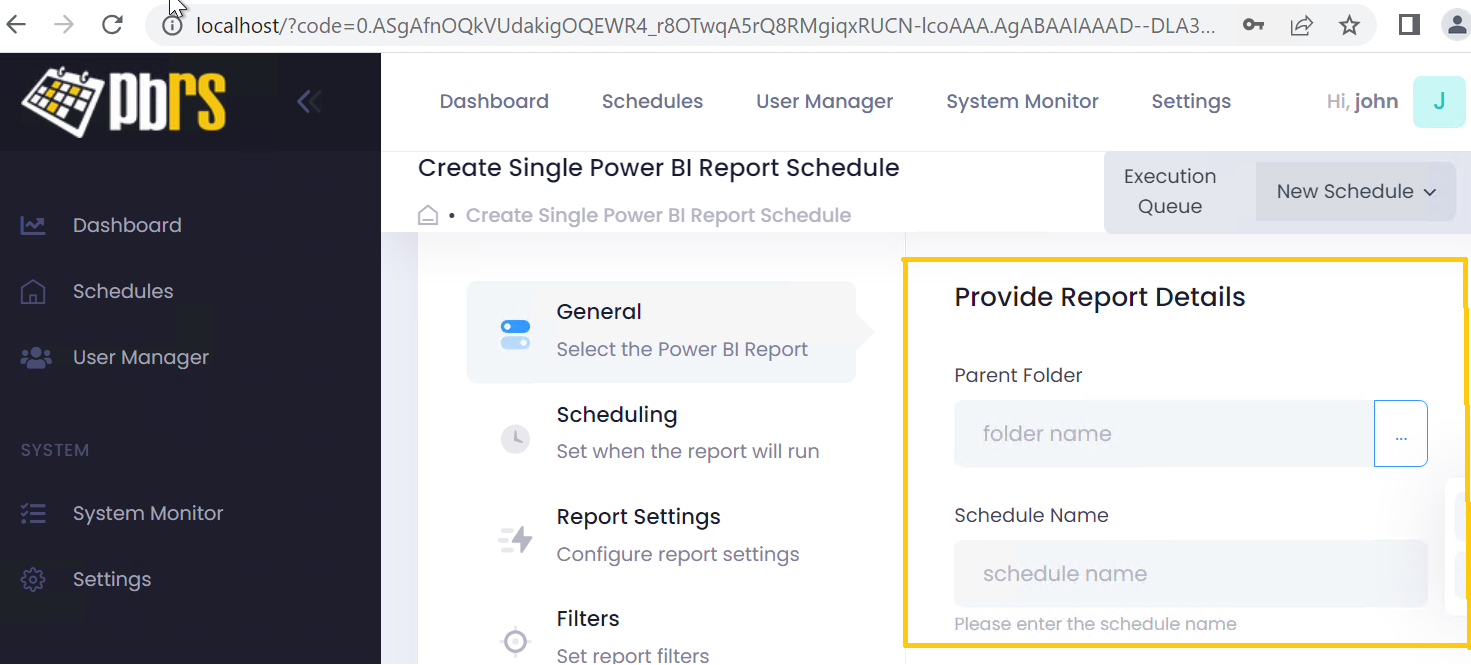
Step 3 - In the "Power BI Report / Dashboard" Section
- Choose the required the Power BI account needed to access the Power BI report that you want to Schedule.
- Select the required workspace from the Workspace drop-down menu.
- Select the Type of report that you want to Schedule from the Type drop-down menu.
- Choose the Report or Dashboard that you want to schedule.
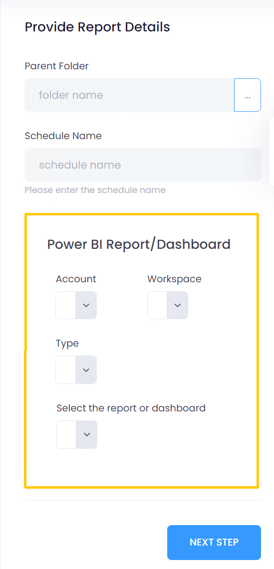
Step 4 - Proceed to the Scheduling Tab by clicking the "Next Step" button.
Scheduling Tab
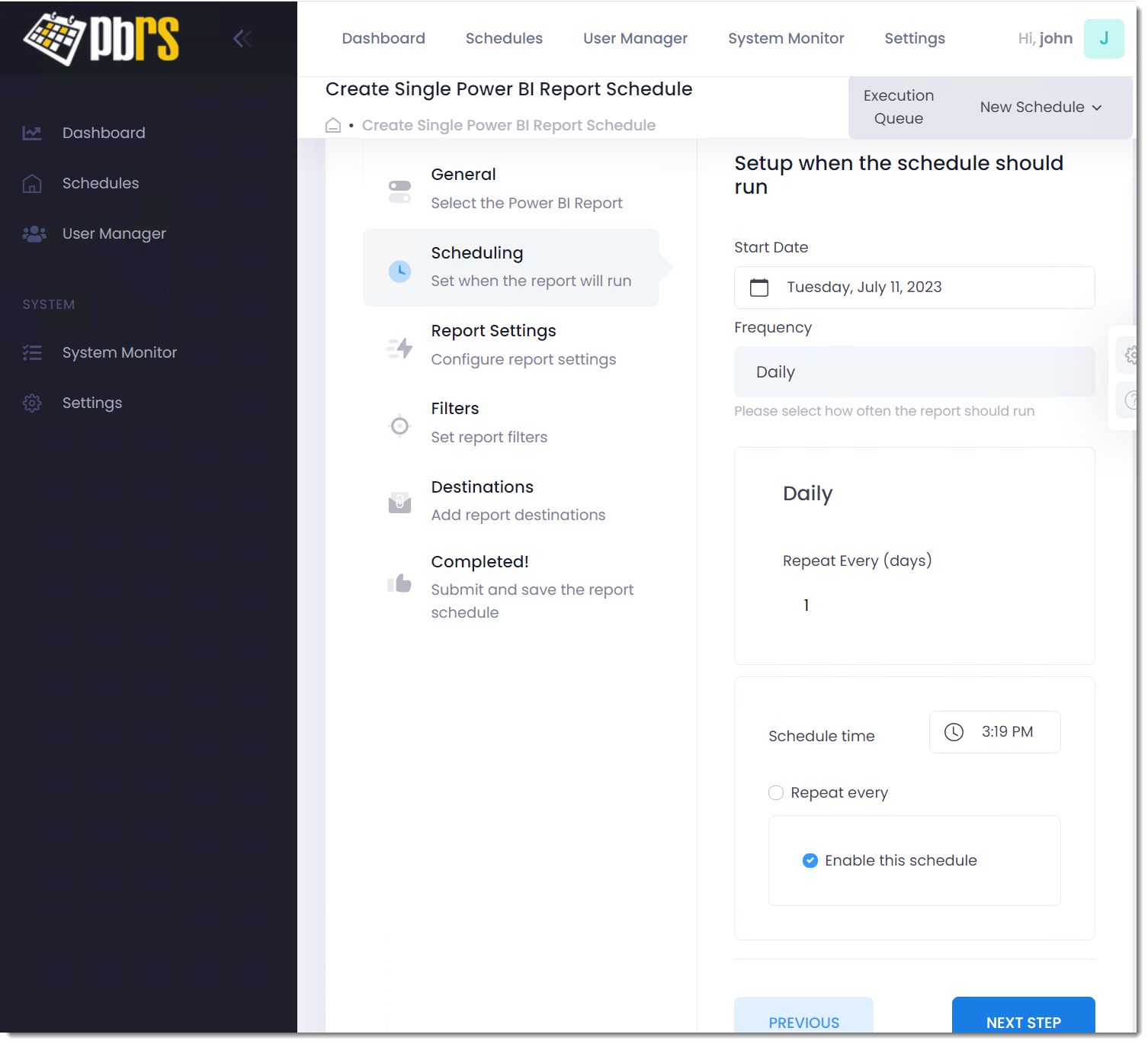
Step 5 - In the "Setup when the schedule should run" section, you can select the start date for your schedule by clicking on the calendar icon. Choose the specific date when you want the schedule to begin running. Set the Frequency for the schedule, whether it's daily, weekly, or monthly. This frequency setting determines how often the schedule will run.
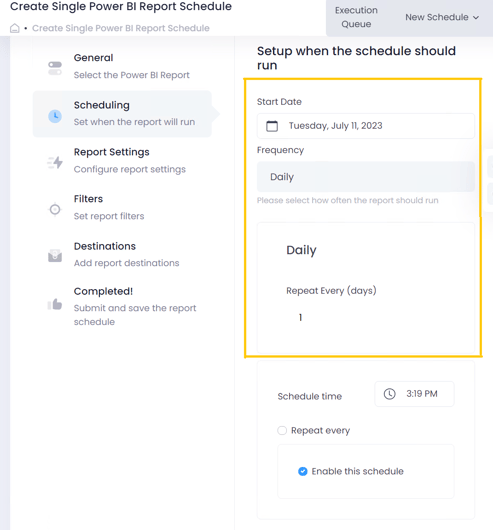
Step 6 - Select a Schedule Time for when the schedule should execute. If you need this schedule to repeat multiple times throughout the day, you can select the "Repeat Every" option.
Step 7 - Check Enable this Schedule, to ensuring that the schedule will run when it is supposed to in the future.
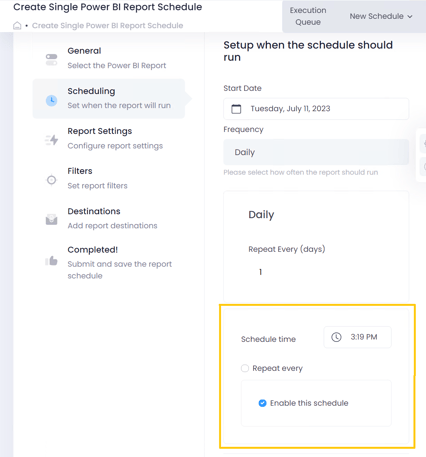
Step 8 - Proceed to the Report Settings Tab by clicking the "Next Step" button.
Report Settings Tab
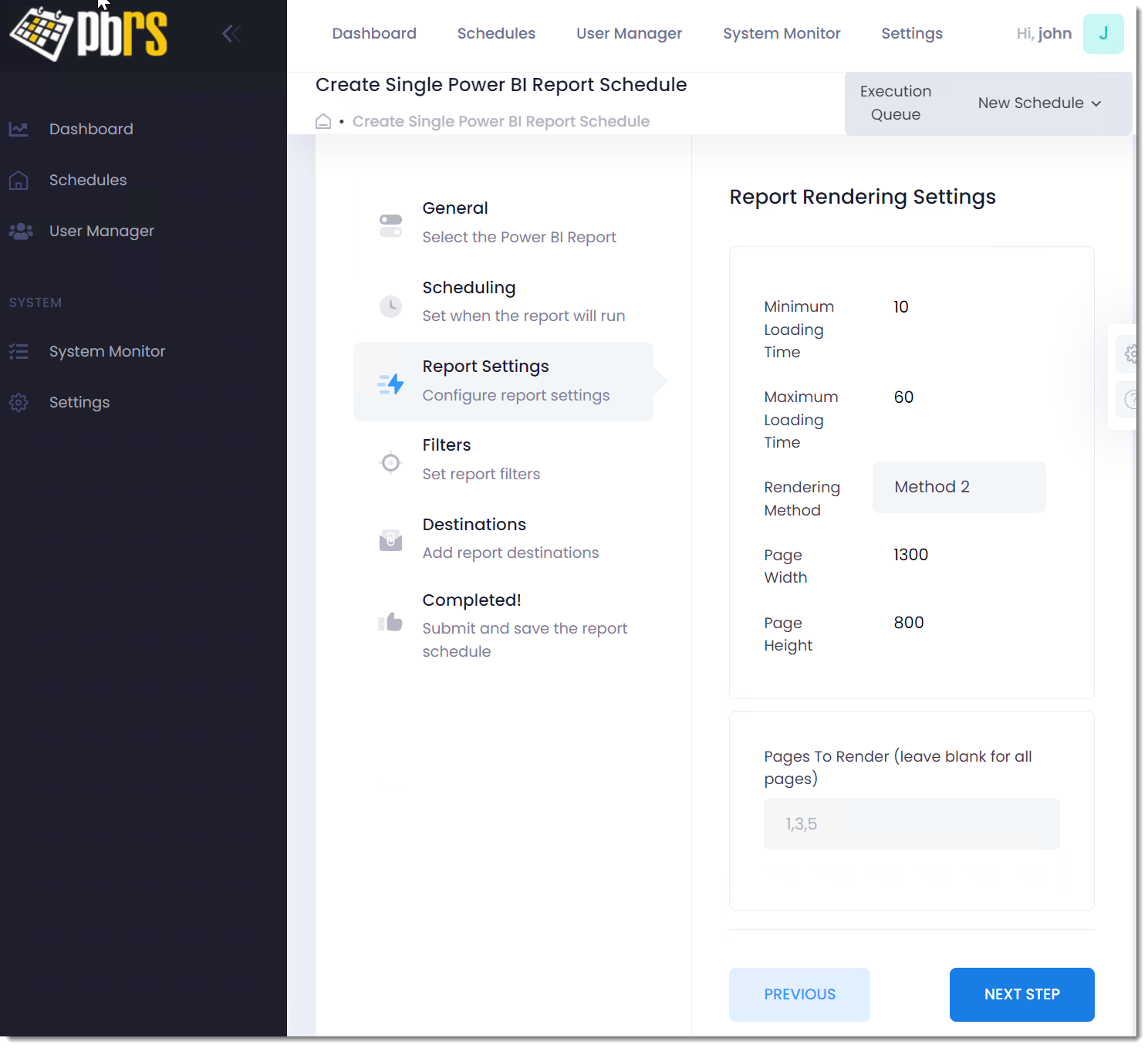
Step 9 - In the Report Rendering Settings section, you have the flexibility to customize and apply specific settings to the report according to your preferences.
If you prefer not to export all pages of the report, you have the option to specify which pages you want to export in this section.
Step 10 - Proceed to the Filters Tab by clicking the "Next Step" button.
Filters Tab
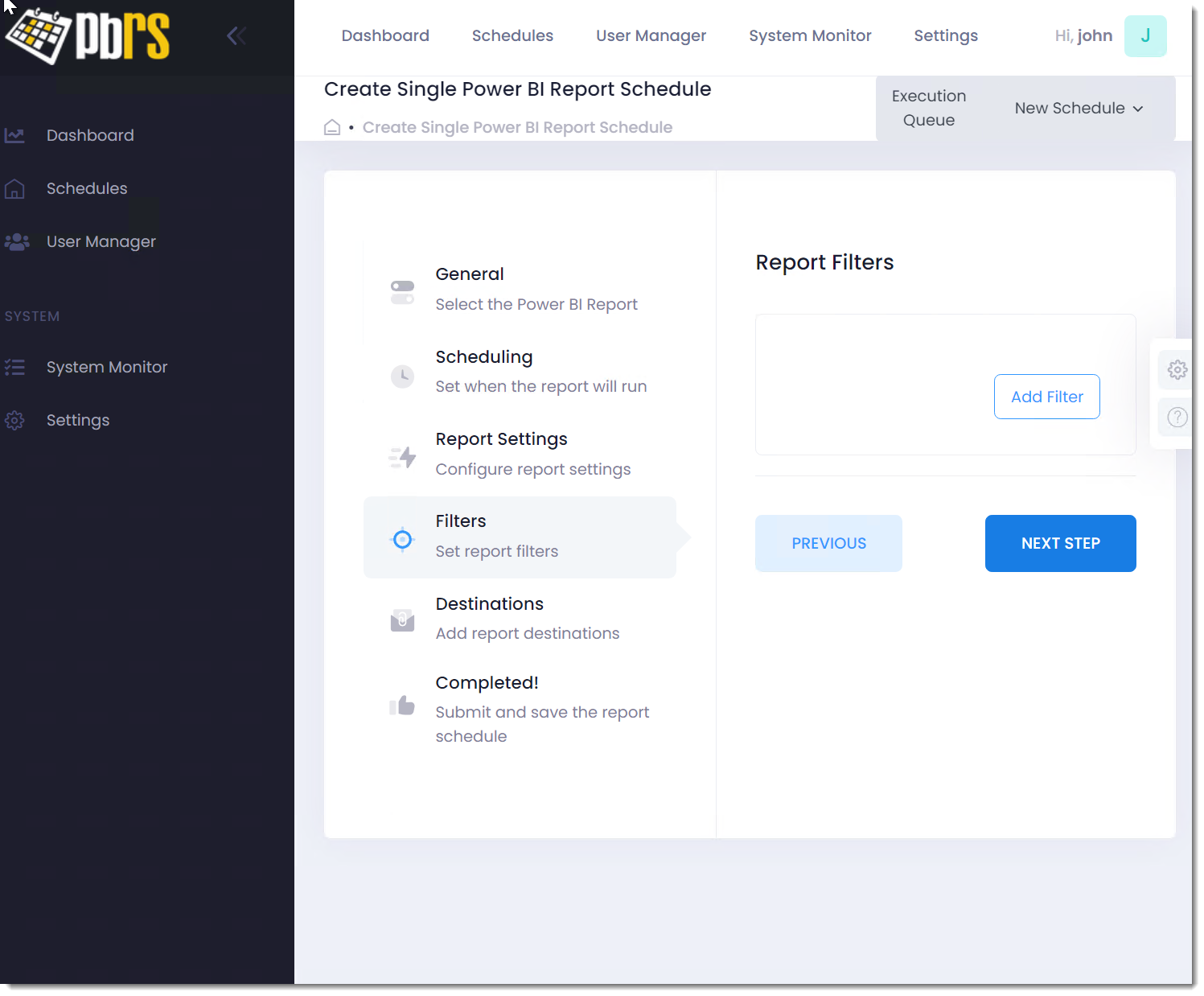
Step 11 - To add a Report Filter, go to the Report Filters section and click on the "Add Filter" button.
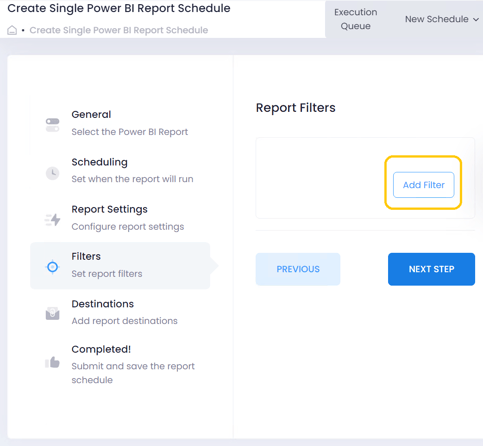
The following Screen will be displayed
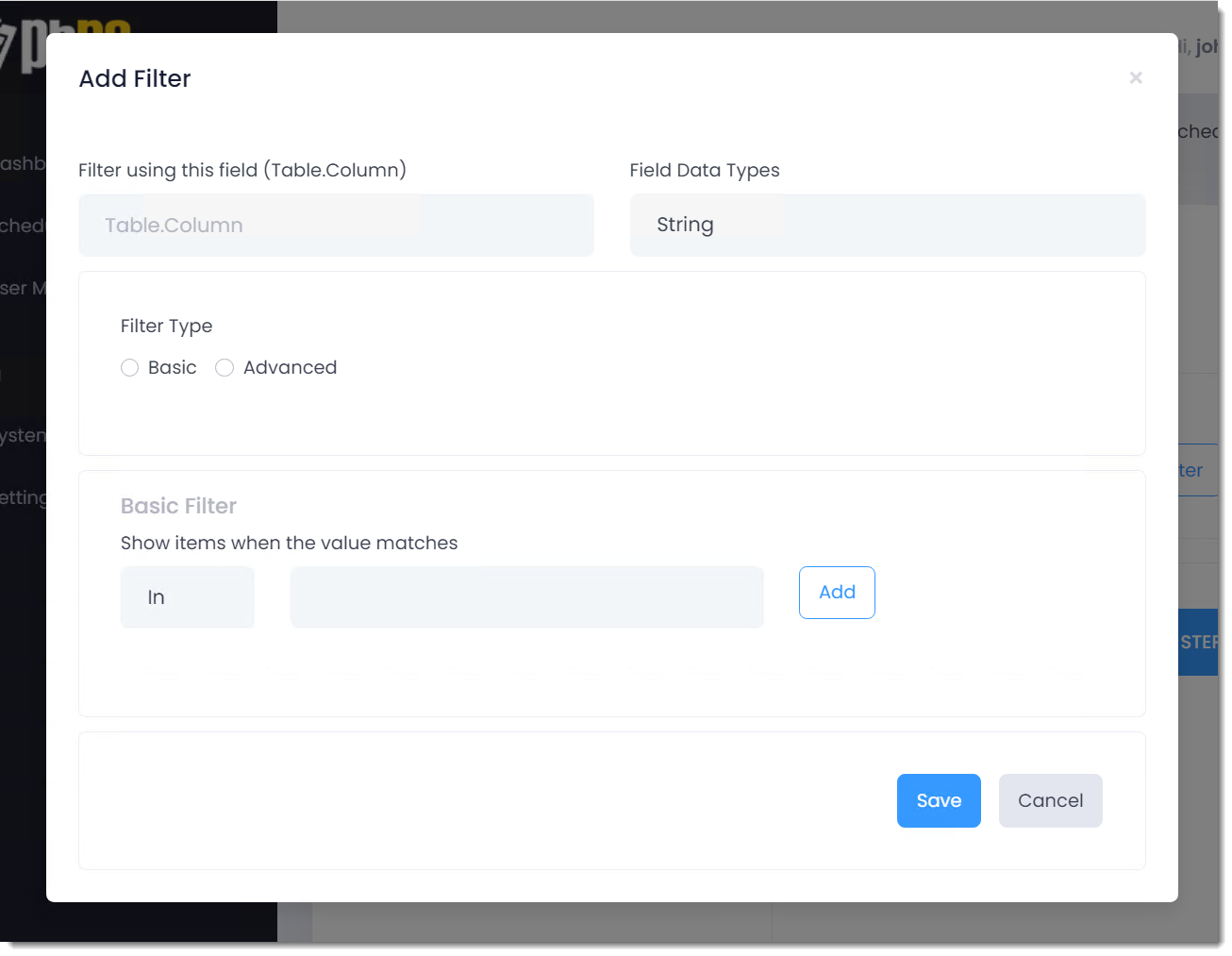
Step 12 - Configure the required report filters.
Under Filter using this Field, enter your report filter.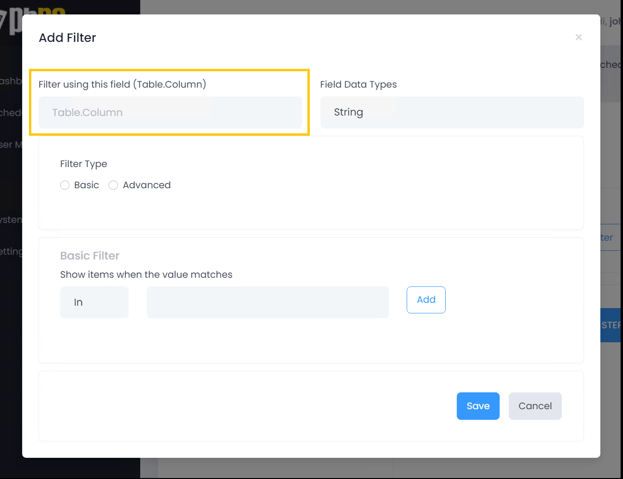
You can select your data type under the Field Data Types drop down button. 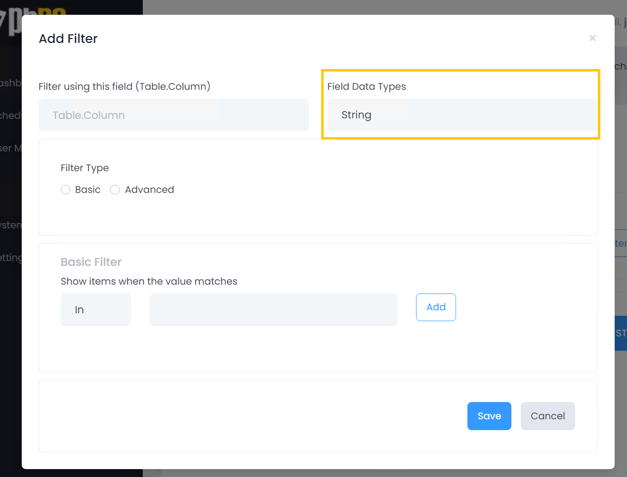
Select whether or not you would like your Filter Type to be basic or advanced and enter your required filter. 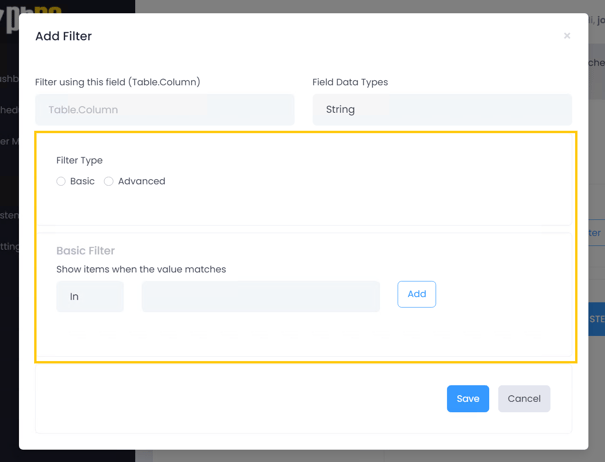
Step 13 - Click on the Save button to save the Report Filters and close this screen.
Step 14 - Proceed to the Destinations by clicking the "Next Step" button.
Destinations Tab
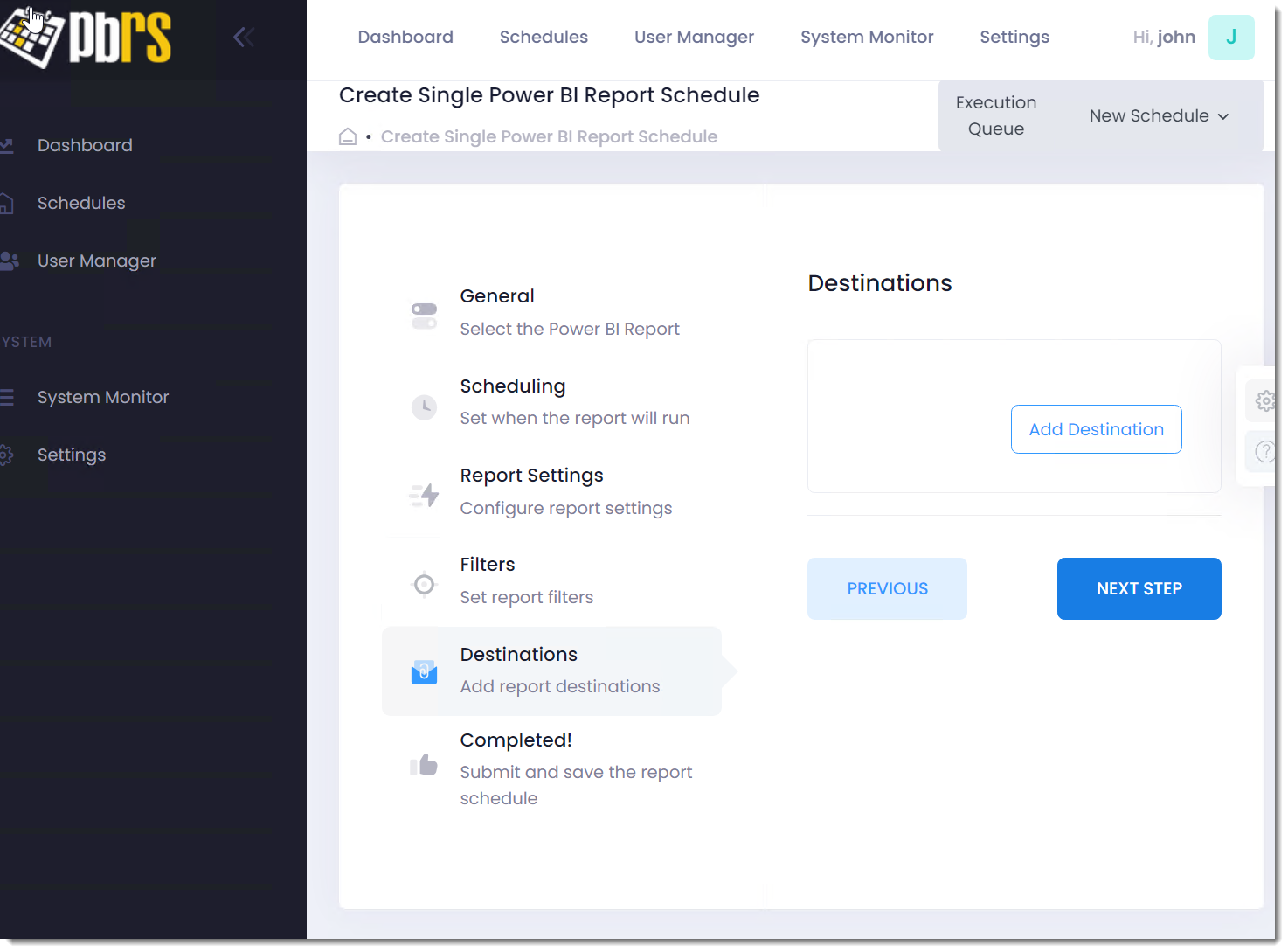
Step 15 - In the Destinations Section, click Add Destination to add a destination for the report.
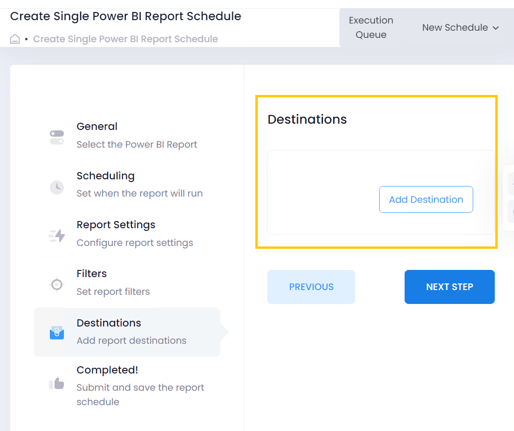
The following Screen will be displayed.
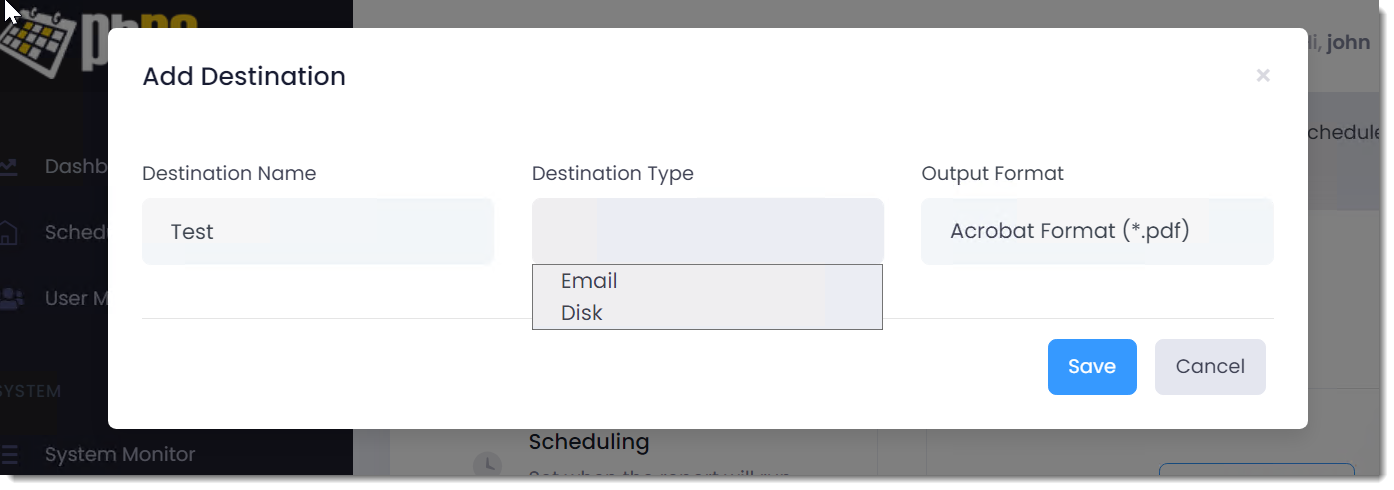
Step 16 - Provide a Destination Name, choose between Email or Disk Destination, and select the desired Output Format.

Step 17 - Save your destination by clicking on the "Save" button and to close the screen.
Step 18 - Proceed to the Completed Tab by clicking the "Next Step" button.
Completed Tab
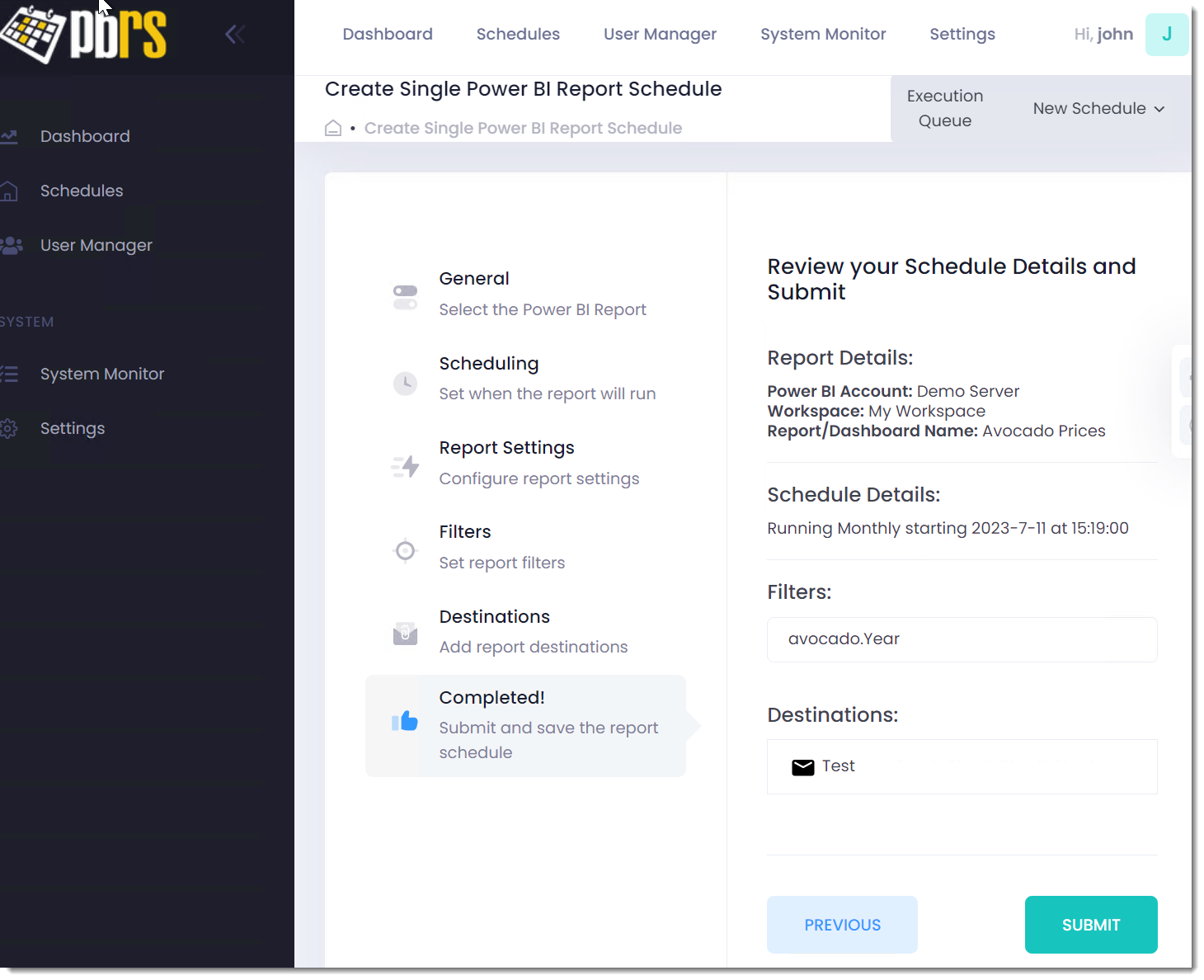
Step 19 - After reviewing the schedule setup and confirming that no changes are needed, simply click on the Submit button to save the schedule.
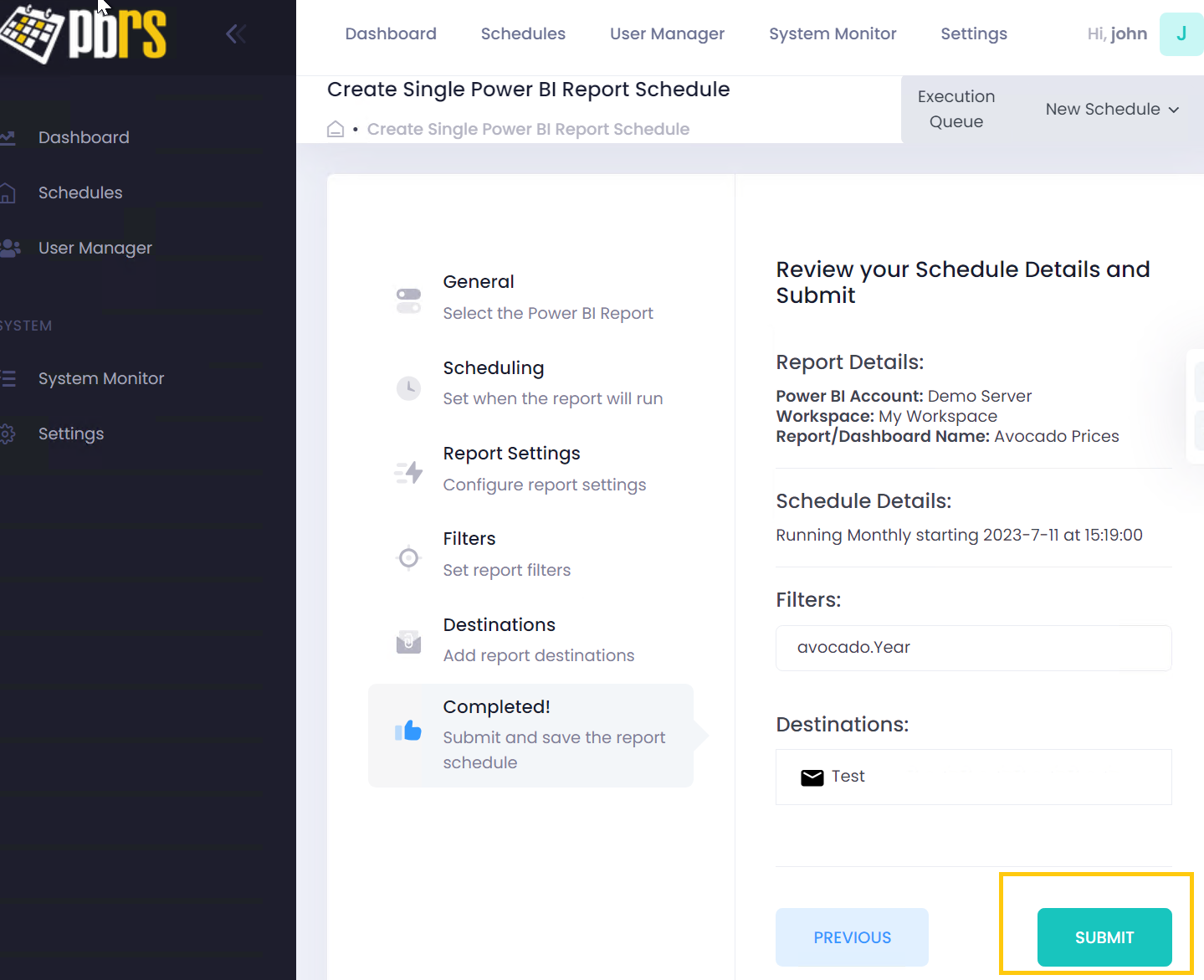
Once the Schedule has been created the following screen will be displayed.
